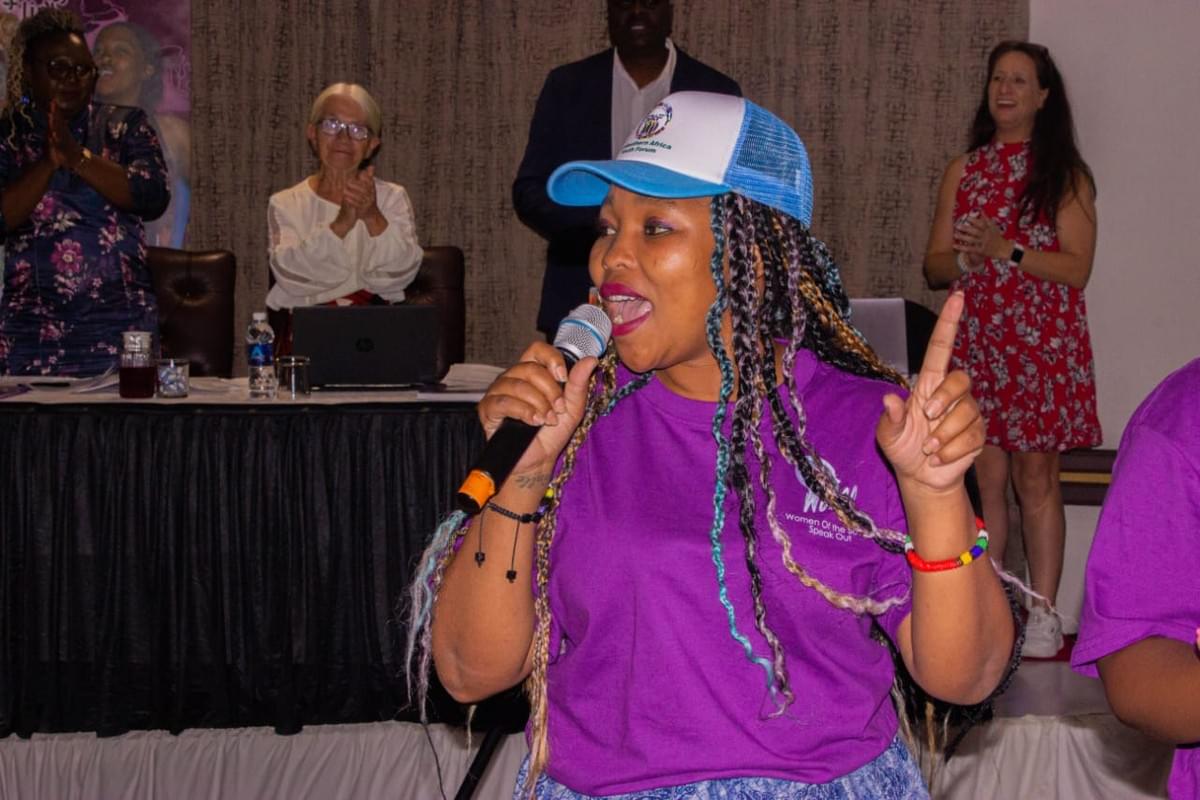Africa is buzzing with political transformation, and women are leading the charge. From presidencies to grassroots mobilization, women’s influence is reshaping our continent’s political future. As someone deeply involved in politics, let me share not only the trends but also my personal experience witnessing these changes unfold.
Back in August this year, during the SADC Summit in Zimbabwe, as a WOSSO Fellow, I attended the launch of the Africa Barometer on Women’s Political Participation facilitated by Gender Links and partners. It was a day filled with both inspiration and resolve. The Barometer highlights the current state of women in leadership across Africa, mapping progress while exposing areas needing urgent attention. What struck me most was its call for action: from increasing representation in parliaments to addressing systemic barriers that hinder women’s political ambitions. We are witnessing an interesting shift.

Take Namibia and Ghana, for instance. Both now boast a women as president and a deputy president respectively, demonstrating that Africa is ready for female leadership at the highest levels. They join a growing list of trailblazers like Samia Suluhu Hassan of Tanzania and Sahle-Work Zewde of Ethiopia, whose leadership styles are shifting priorities toward equity, education, and healthcare.
Over in Botswana, President Duma Boko has assembled a cabinet that’s 50% women and youth, showing that inclusive governance isn’t just idealistic, it’s effective. These changes ripple across the continent. In South Africa, the 2024 elections delivered a Government of National Unity (GNU), reflecting voters’ demand for collaboration and accountability. Women were pivotal, with 55% of voters being female, many rallying behind policies addressing safety, equity, and socio-economic reform.
For me, as a young black woman with a voice in the political space in South Africa. I have experienced first hand the need for more women to enter the political arena. In my capacity as the former Western Cape Women’s Forum Provincial Chairperson under ActionSA, I found myself leading incredible women from diverse backgrounds—farmers, professionals, single mothers, and even those fighting for survival in marginalized communities. Together, we challenged norms, redefined leadership, and made it clear that women are not only the backbone of society but its future.
This role elevated my political activism to a new level, enabling me to contribute directly to the spaces where policies are crafted and legislation is shaped—the very issues I had been championing from the civil society space. It wasn’t just about representing women; it was about transforming the political landscape to ensure that our concerns take center stage—from addressing gender-based violence and improving access to education to expanding economic opportunities and achieving leadership equity. Lately, as I’ve reflected on this journey, it struck me that the Africa Barometer on women’s political participation and its call to empower women to engage more actively in politics is, in many ways, talking about women like me.
Here’s what I also wanted to share about what I learned during this period. Politics needs us. Women, especially young women, must take up space in politics unapologetically. Not because we’re token figures or quotas to be filled, but because our perspectives, lived experiences, and leadership are irreplaceable. We bring to the table what no one else can—the courage to confront the status quo and the wisdom to build a more inclusive future.
We’ve already seen what women can do when given the platform. Look at women like Angela Sobey and Nothukela Makohliso, who are relentless in their pursuit of justice and equality. Together, we broke barriers and proved that patriarchy can be challenged and defeated—one policy, one campaign, and one fearless woman at a time. But let me be honest: it’s not easy. Politics is a battlefield, and the scars are real. There’s violence, intimidation, and relentless scrutiny. Yet, we persist because the stakes are too high to back down. We persist because when women lead, communities thrive, and nations prosper. This isn’t just my belief; it’s a fact backed by countless studies and, more importantly, by history itself.
So, what does this mean for me? Well, I sometimes joke about becoming South Africa’s first woman president. But honestly, it’s not just a joke. I think that leadership requires courage, vision, and relentless determination—and I’ve got all three. The shifts in Africa’s political landscape show that women, youth, and diversity are not the future; they’re the now.
To every woman at the grassroots or in parliament: your voice matters. Together, we’re shaping an Africa that honors equity, justice, and progress. Who knows? Maybe one day, I’ll be writing this blog from the Union Buildings. Until then, let’s keep pushing the boundaries.
Because this isn’t just a political moment. It’s a movement, and Africa’s women are leading it.
N:B Checkout link below for more on the Africa Barometer on Women's Political Participation. Enjoy!
https://genderlinks.org.za/what-we-do/sadc-gender-protocol/advocacy-50-50/africa-barometer-second-edition-2024/

